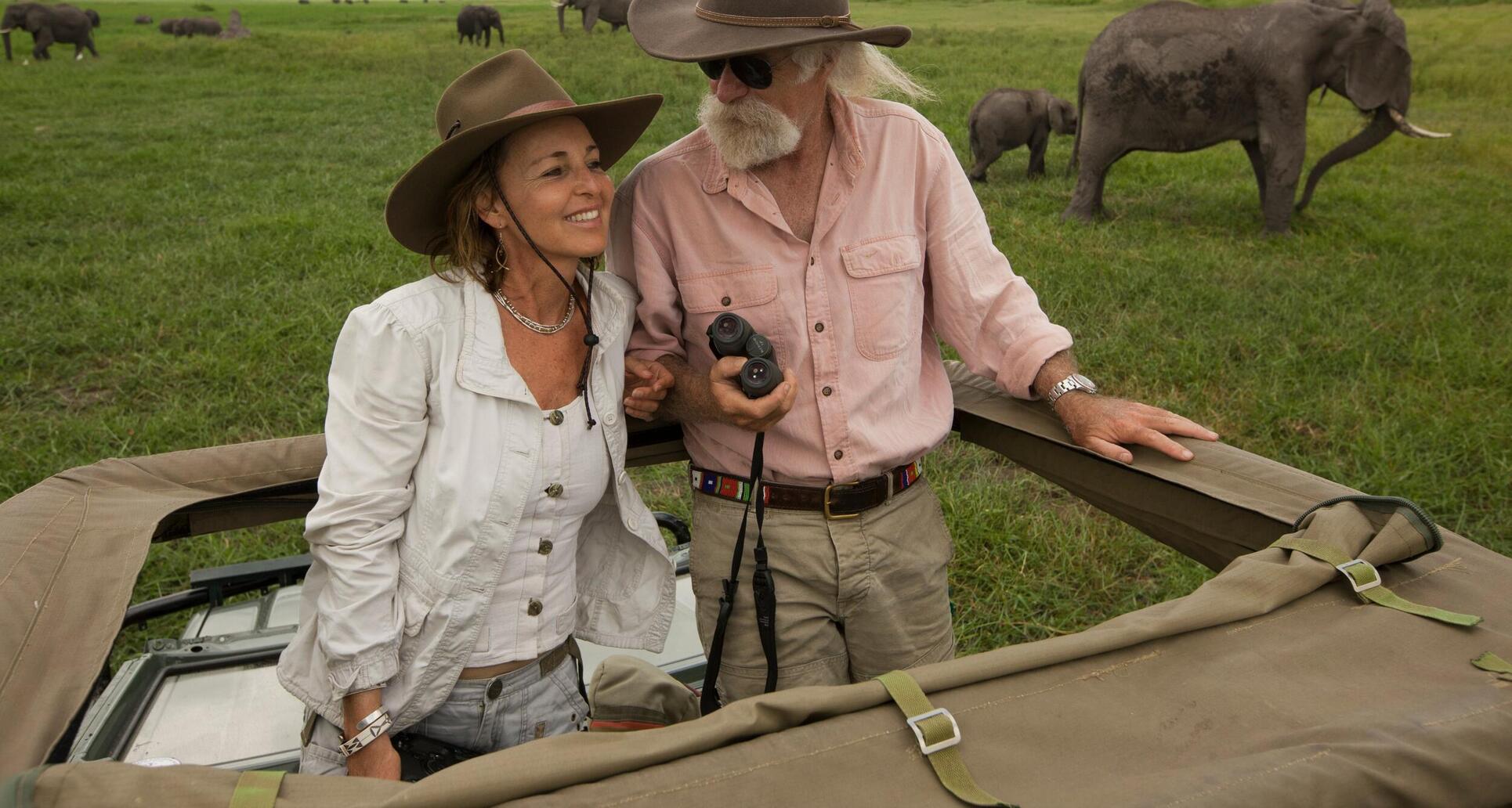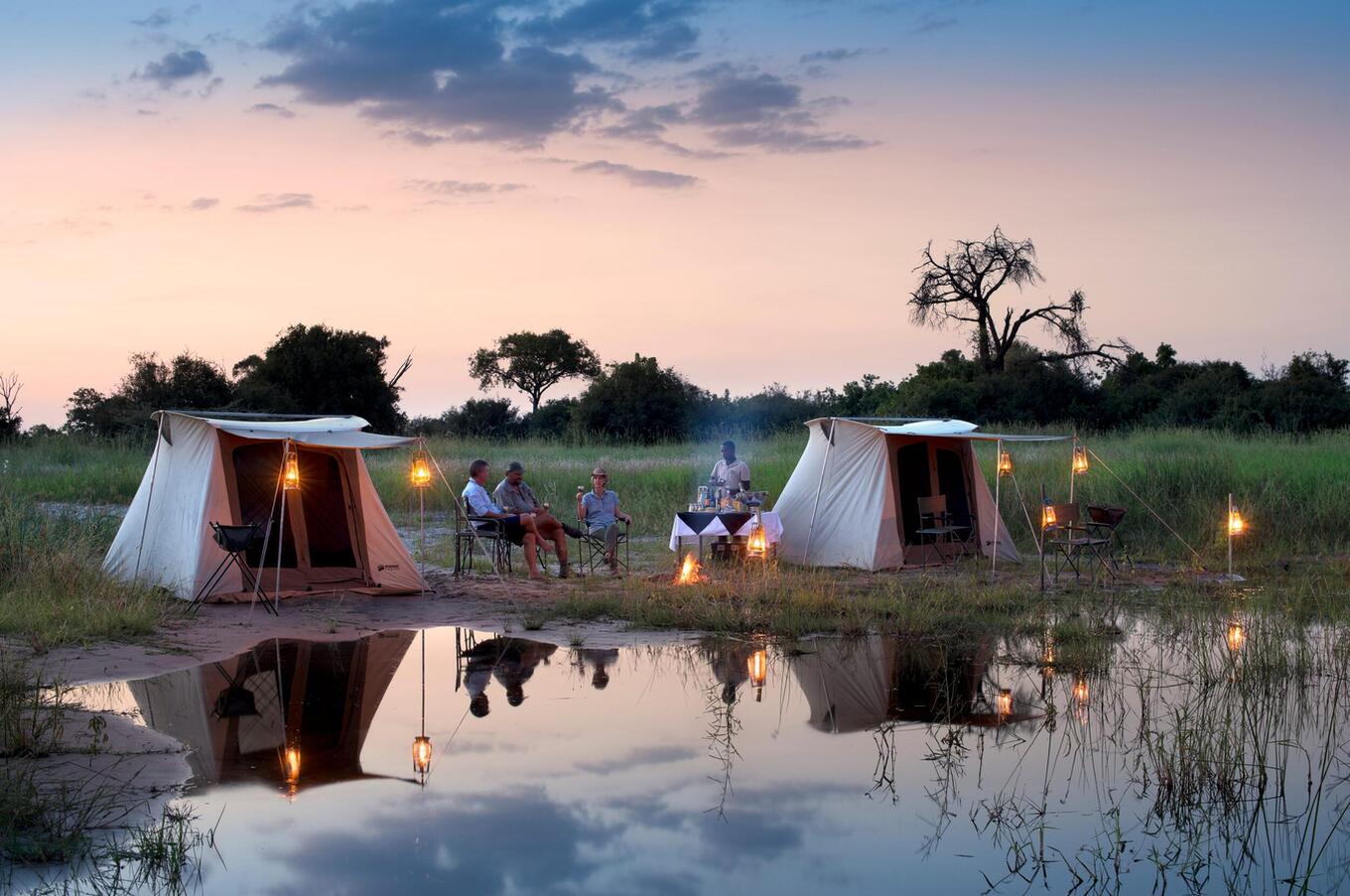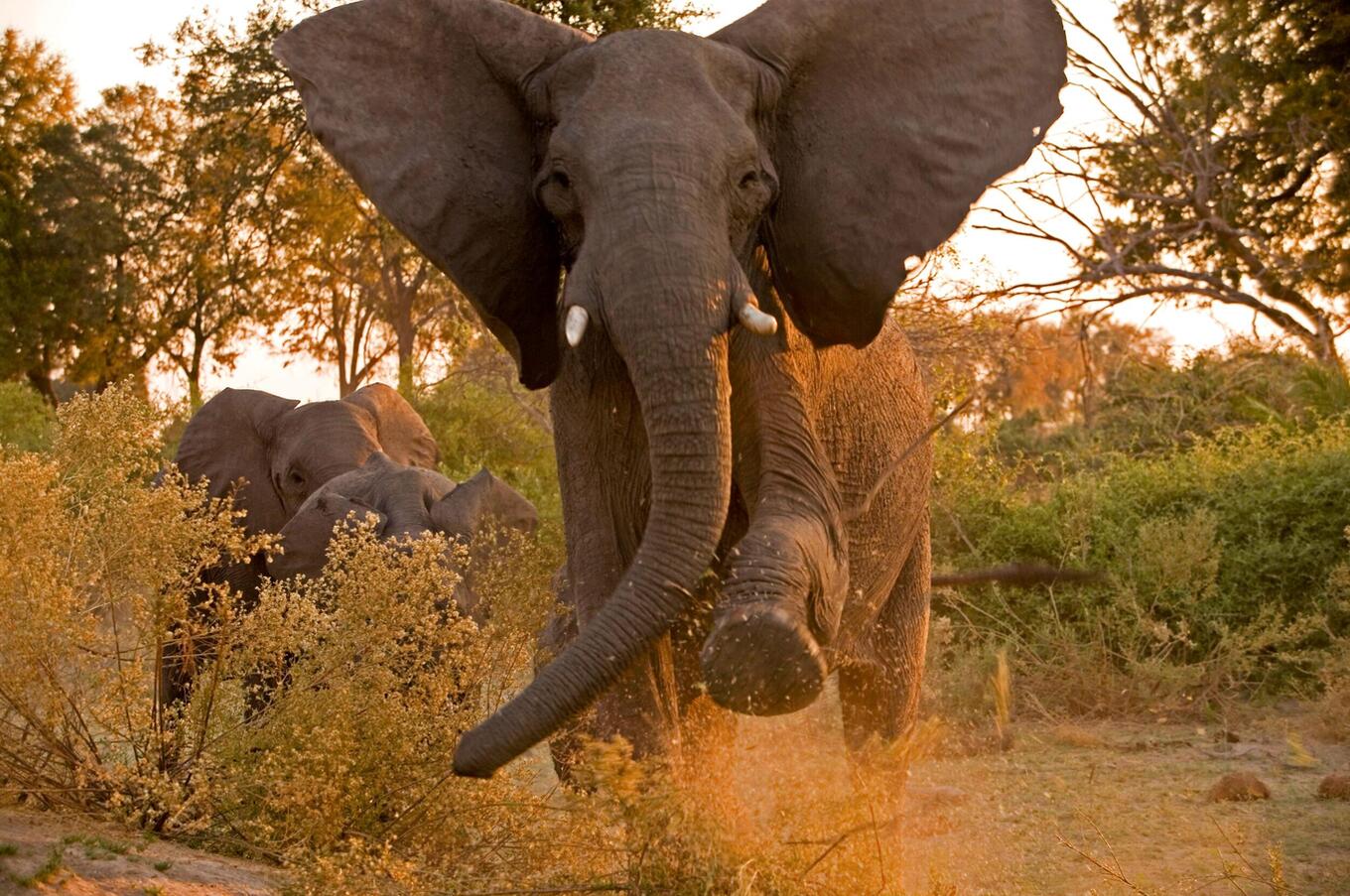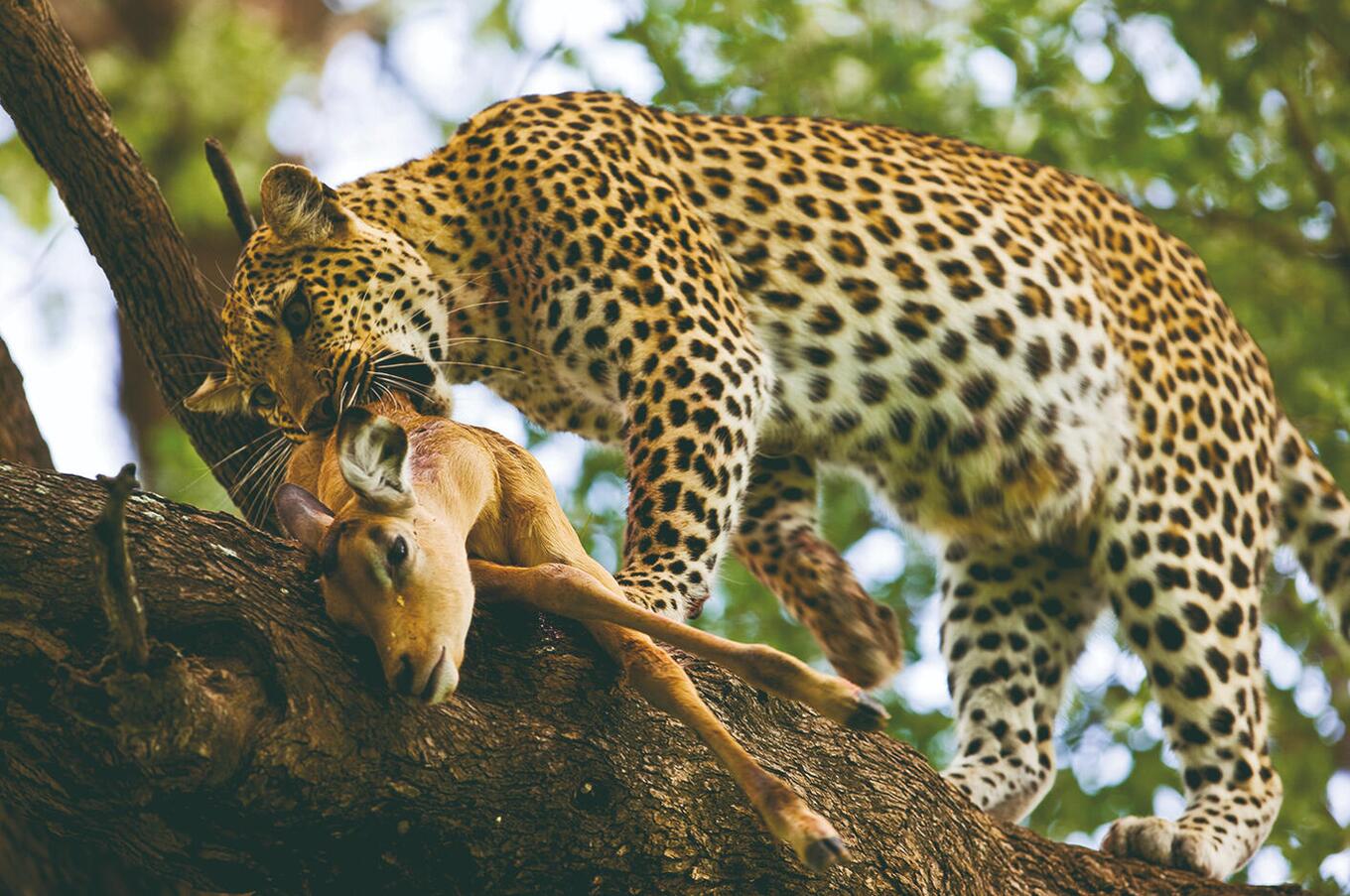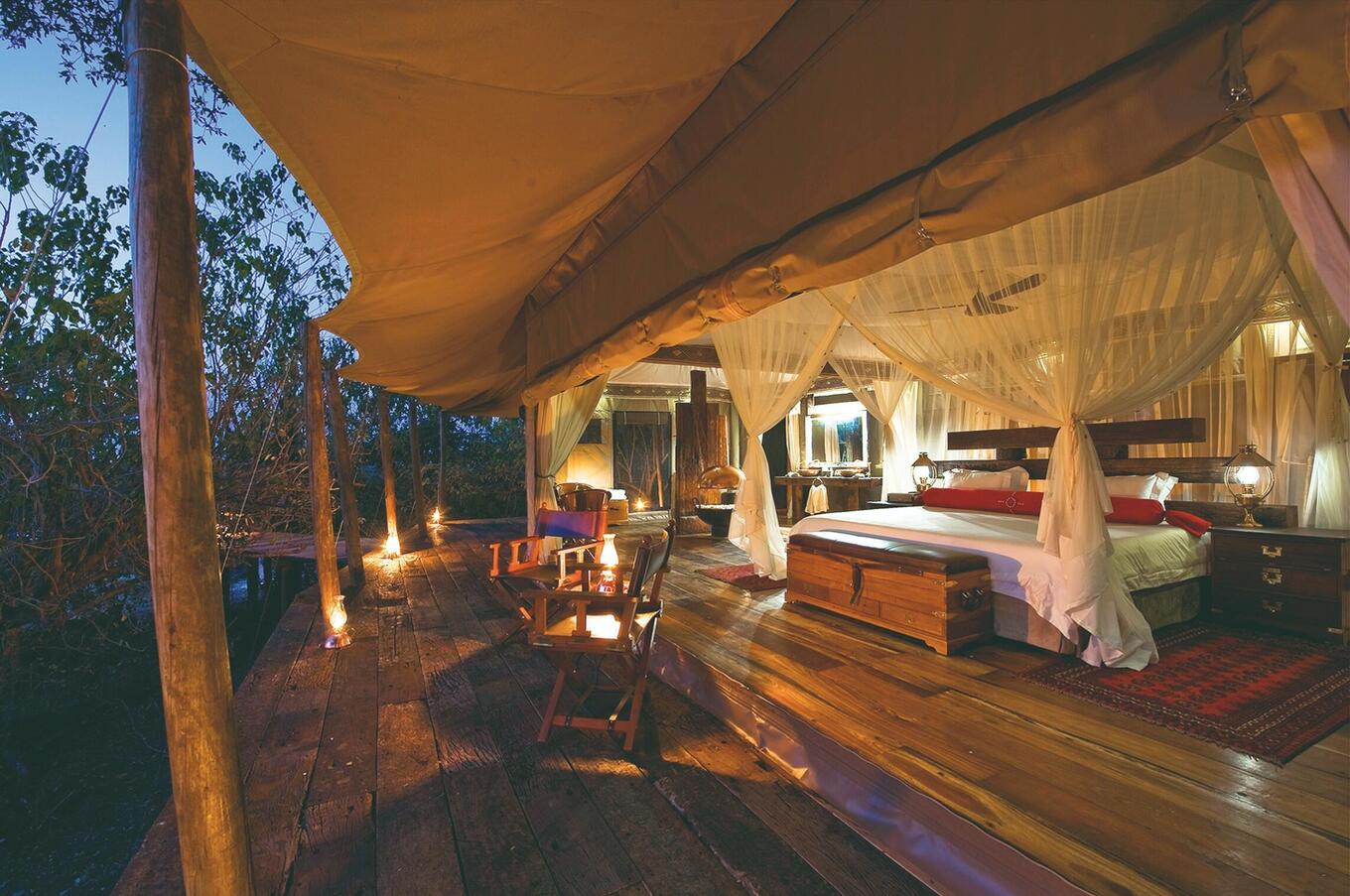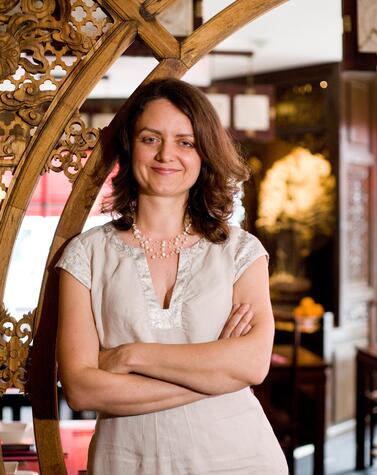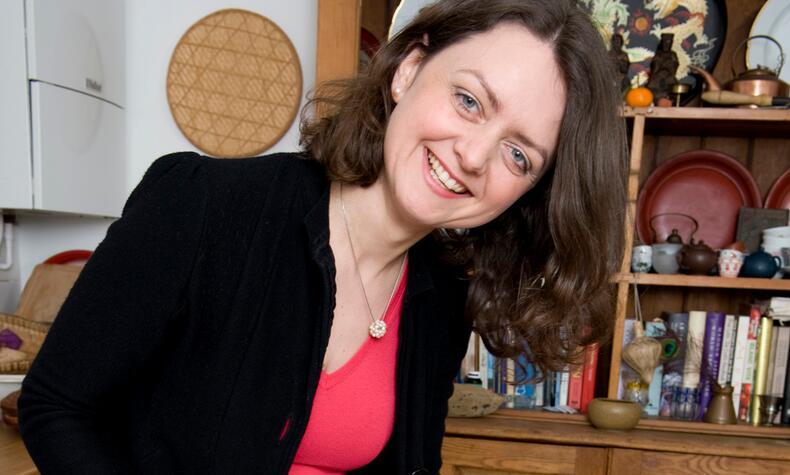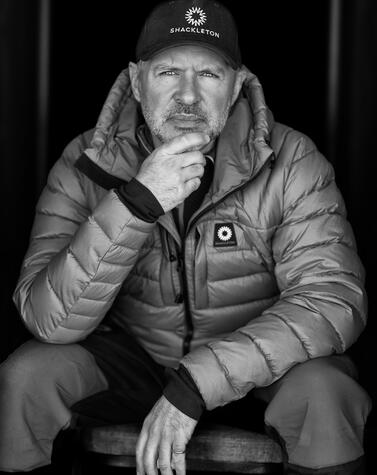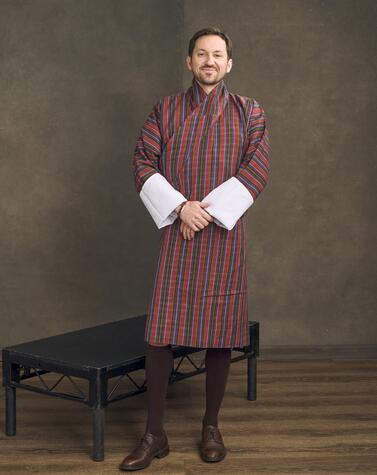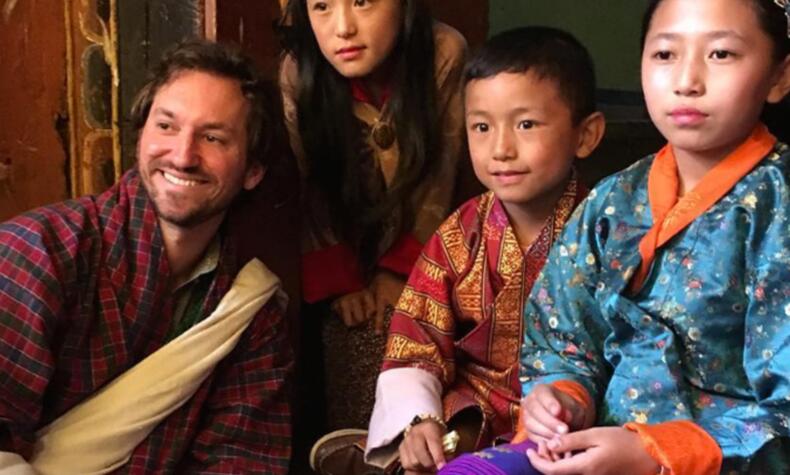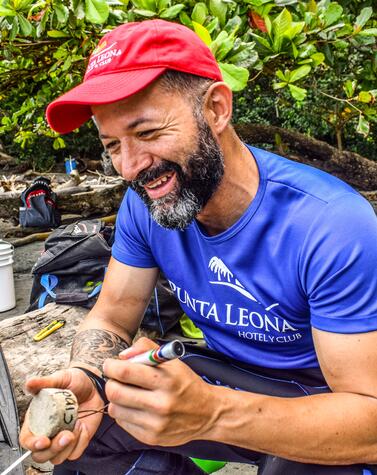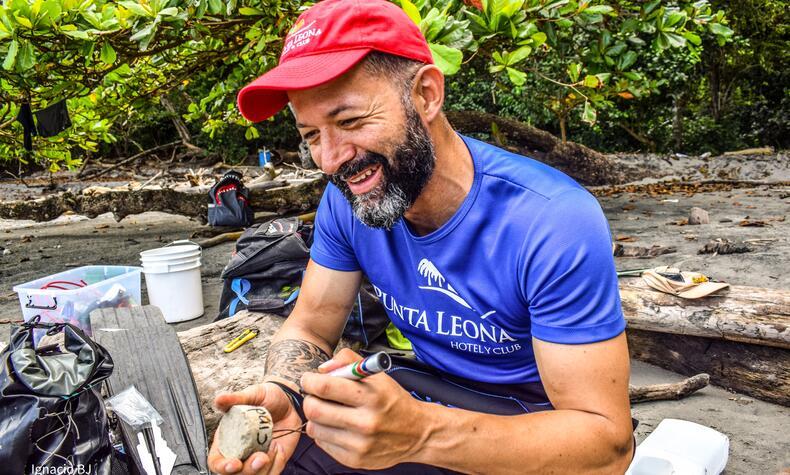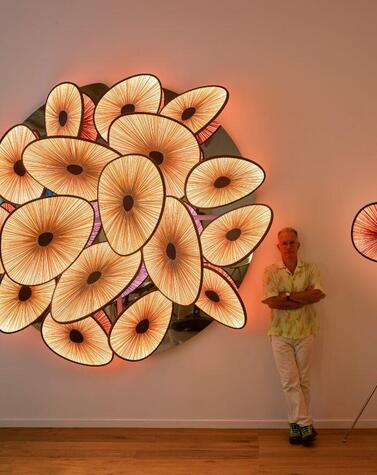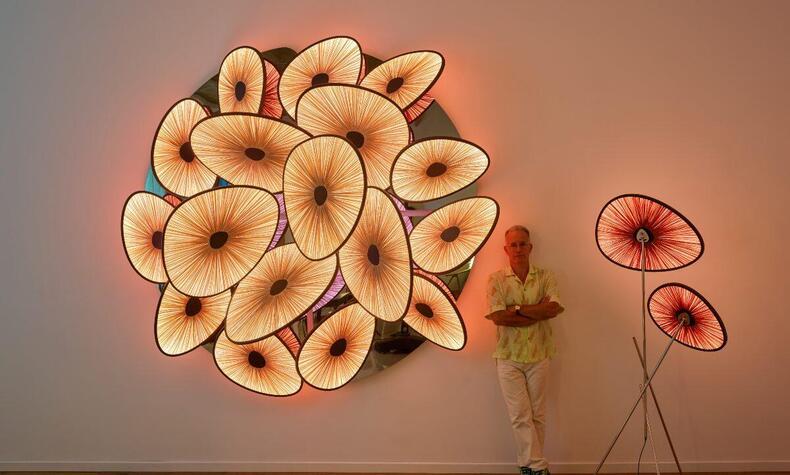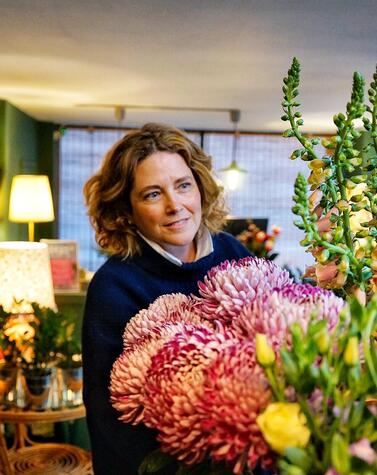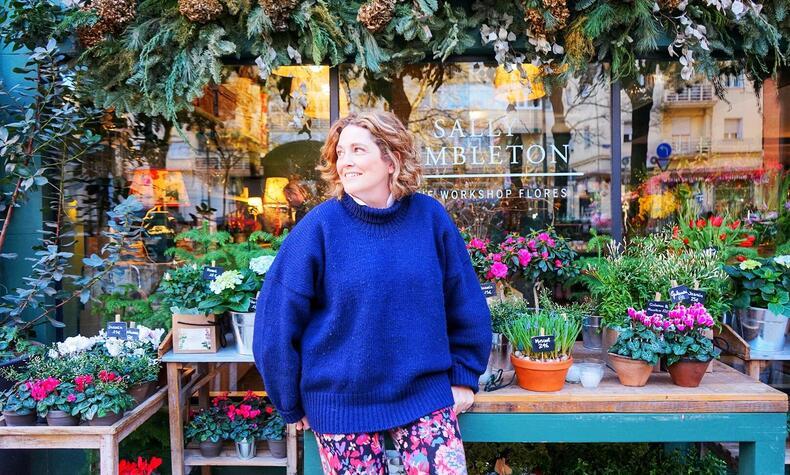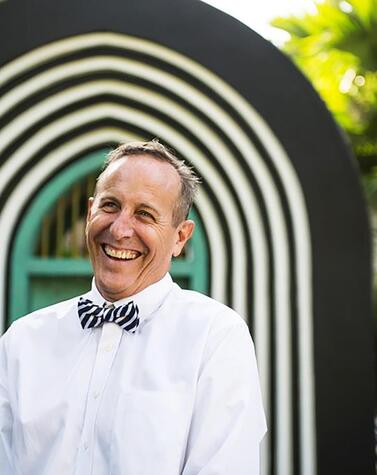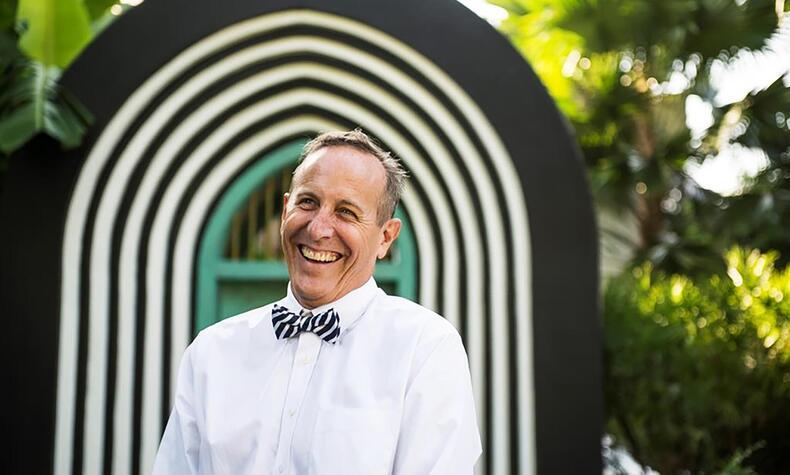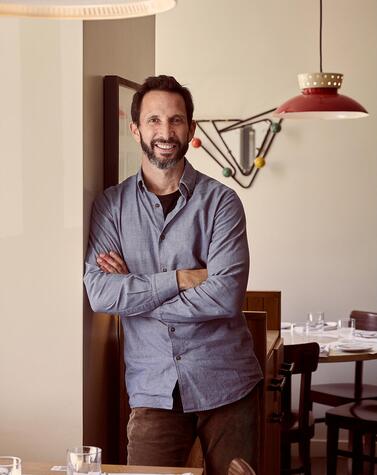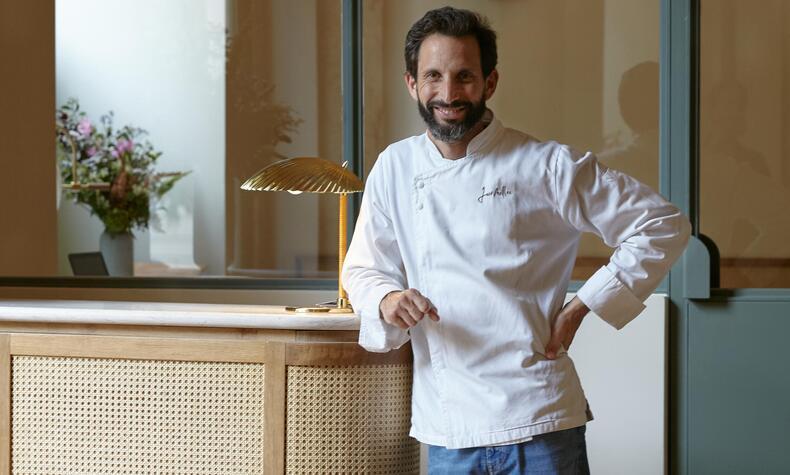Dereck Joubert: "Travel to find yourself"
Dereck Joubert is one of the most important cameramen of the National Geographic Society. He is also the founder of the Great Plains Conservation, a foundation whose objective is to protect large areas in Africa through sustainable tourism. Today, it is one of the world's benchmarks in African wildlife conservation forums.
How does Dereck Joubert get to Great Plains Conservation? Or maybe the question is... how does Great Plains get to Dereck?
I have been involved in conservation issues for 35 years now, mostly in the area of big cats. Thinking about the best way to protect big cats, I realized that the key was land; protecting spaces of land where big cats could be protected was better than going about protecting lions one at a time.
The next step was how to get the funding to do it. At first, getting funding to lease land was easy, but then, to do it sustainably, I turned to tourism. Thus, Great Plains Conservation was born.
Dereck Joubert (born March 3, 1956, in Johannesburg, South Africa) has more than 25 documentaries to his name and has won four Emmy Awards, a Peabody, and an award at the Wildlife Films Festival.
He always works with his wife, Beverly, and produces his documentaries in Botswana, specifically in the Savuti and Okavango Deserts. Together, they have been working on the African continent for more than 25 years. Most of their work is with lions, but they have also filmed and studied elephants, hyenas, leopards, and zebras.
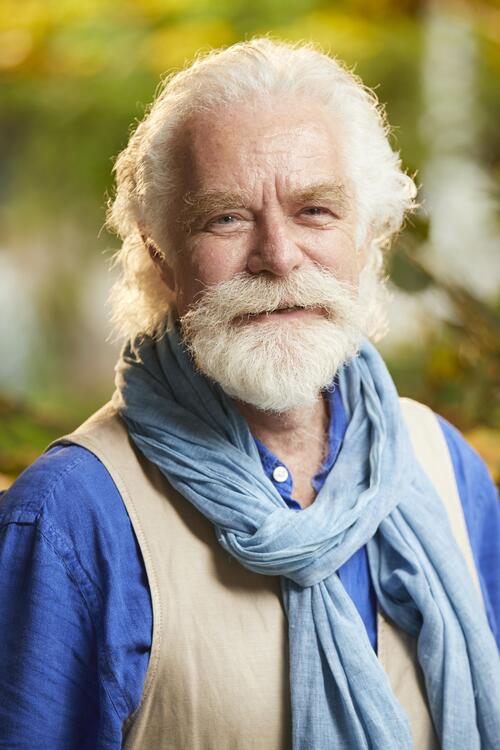
When and how did environmental conservation become your way of life?
I was born in Africa, and it is part of my DNA. In my childhood, I was always in the back seat of my parents' car going to some reserve. But it wasn't until after college that I went out to discover myself and the continent I was born on.
You've made more than 25 documentaries for National Geographic and have certainly had a great influence on millions of people. Do you consider yourself an agent of change?
I think so, although I'm very conscious and aware that if you think you are, you're probably not. However, we try to use our films, books, talks, and even tourism to change people's perceptions about nature and, as such, save the planet.
In the age of mass tourism, ecotourism seems to be a positive trend. You have been very critical of it. What would you say to all those people who travel with an ecological conscience?
I think traveling with a conscience is important. Choose well the places, the style, and the company you want to travel with. I strongly believe that traveling is important. It puts you in the other person's shoes, in their life, and in a different environment if done correctly. It erodes racism and xenophobia; it creates tolerance. But mass tourism, the one that serves only to cross a place or a species off the list, is the ugliest side of tourism. Travel to find yourself, that inner peace, to be inspired and creative.
Tourism and sustainability are increasingly at odds with each other. How do you strike a balance between sustainability and the concept of bringing tourism to remote, untouched areas of Africa?
Done in the right way and with sensitivity, tourism gives and takes. It generates income for local communities and ecosystem conservation. And, it reaps the rewards of allowing you to receive personal enrichment and a greater understanding of the world. At Great Plains, being a conservationist myself and associated with National Geographic as an explorer, conservation is vital to us. We conduct an annual audit on the impact we may generate annually on the ecosystem, and we make adjustments to minimize it, always aided by the latest technology. I could say that there are very few projects and operations as innovative and cutting-edge as ours.
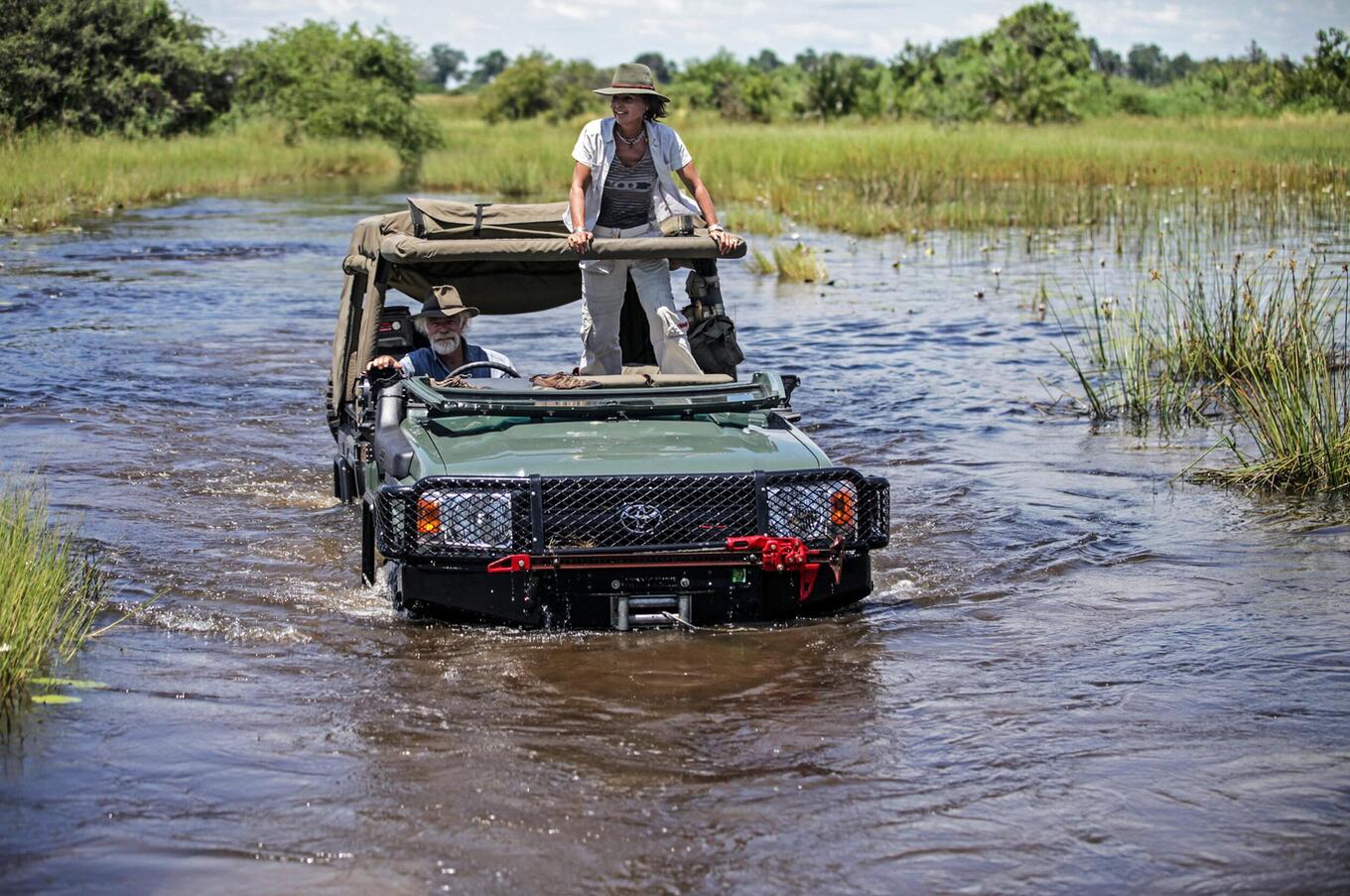
Is sustainable tourism in Africa reserved only for the wealthy?
No, not at the level of sustainability, but the impact of mass tourism is detrimental. Look at the case of the Masai Mara National Reserve, where up to 50 vehicles crowd around a cheetah, making it impossible for it to hunt, or where vehicles block the passage of the wildebeest down the river because everyone wants to see a crocodile kill one.
This is what happens at $50 a day, making cheap safaris bring in large crowds with terrible leverage for everything. Therefore, low-cost ecotourism (that which involves large crowds) should be designed for environments where the volume of visitors will not erode or even collapse the ecosystem.
I do see advances in virtual tourism and different levels of experience. For example, at Great Plains, we have different options where one camp may have a very high level of luxury, and another may be in simpler tents set up directly at ground level that many of our younger customers prefer.
What are GPC's clients like? Could you define a profile?
We have guests who care and are interested in conservation. Age, breed, size, shape... none of that is important. We cater to people with whom we share values of care and compassion for each other, for the ecosystem, and for the future. For example, we have many couples and younger people staying at our exploration camps, and years later, they return to stay at Zarafa, Duba, or one of the higher-end camps.
We see that their second visits are of longer duration, starting with stays of two or three nights and then returning for a full week. We have families up to several generations. One family of 22 booked three camps in the Selinda reserve, sharing meals and dinners in the savannah together.
What is the biggest challenge facing African ecosystems and wildlife today?
Three - Ignorance, greed, and need. If people don't know it's bad to buy pangolin scales, they will. Same with rhino horn, ivory, etc. Ignorance erodes everything. That's why we make documentaries and edit books, give lectures, and write articles to be published so that no one on the planet will know that poaching and animal trade is bad.
Once you know it, you can no longer ignore it. Codicia is when you know it, and yet you kill anyway, making you a selfish criminal. We need to look for solutions with laws and patrols to increase the risk and penalties for poachers and reduce the market value of the commodity. If you are a poacher, the risk of being shot by a patrol will not be worth it if the market value of the ivory is low. And the need that arises from poverty is something we have to eliminate. If you don't know where your food will come from tomorrow, you'll go get it any way you can.
How can tourism help?
It helps alleviate poverty. Ecotourism generates and distributes income among local communities. It helps by developing balance, harmony, and understanding. It eliminates the need but also increases knowledge. If a child listens to what we tell him during his safari, goes back to his school, and hears another child talking about how his father wants to go to Africa to hunt a lion, he will speak up and explain why that is wrong.
What is your view on the impact of social media on conservation?
Cecil the Lion did a lot for lion conservation. Social media gets the word out. It's also a platform for hate and unbelievable lies. Hunters use it to post some very dubious reasons to justify killing animals, to be repeated and shared over and over again, the same way climate change detractors do. It's a war of words, and I worry that they have confused a lot of people.
Your camps are well known for their interior design and beauty. Tell us who makes the magic?
Thank you. The process goes like this: it starts with a story I write about the camp - what will it say, why is it here? Then I design it, freehand draw it with ideas flowing, formalize them, and send them to the builders. At the same time, my wife Beverly and I sit down with that story and then get it down on paper and start going shopping, often in old, dusty antique stores to find pieces.
I could have written that I want the arrival at Selinda to be blue (WATER), and then move to one with a flowing white silk ceiling (AIR), and through the dining room with dark brown tables (EARTH), and to the fireplace (FIRE), and complete an experience of the 4 basic elements. Other camps have different design elements, and then we go out and develop that. The Mara is interesting because the cliché is decorated with Masai cloth in red. I found one group of Masai that uses purple and another that uses only white, so I decided to do the interiors in purple and white. That ended up being a challenge!
When you stay at a Great Plains Conservation camp, does it change your outlook and understanding of environmental protection? How is it different compared to any other safari experience?
I hope we are authentic and that we bring people closer to that truest version of Africa, one that is stunningly beautiful and imperfect, hard and soft. I hope we can tell the truth about what you can do to help and change your life, not just see lions or elephants, but understand them, and Africa, and why we should live with trust, empathy, respect, and harmony. It is an intellectual journey with the best possible accommodation and in the best environments, we know.
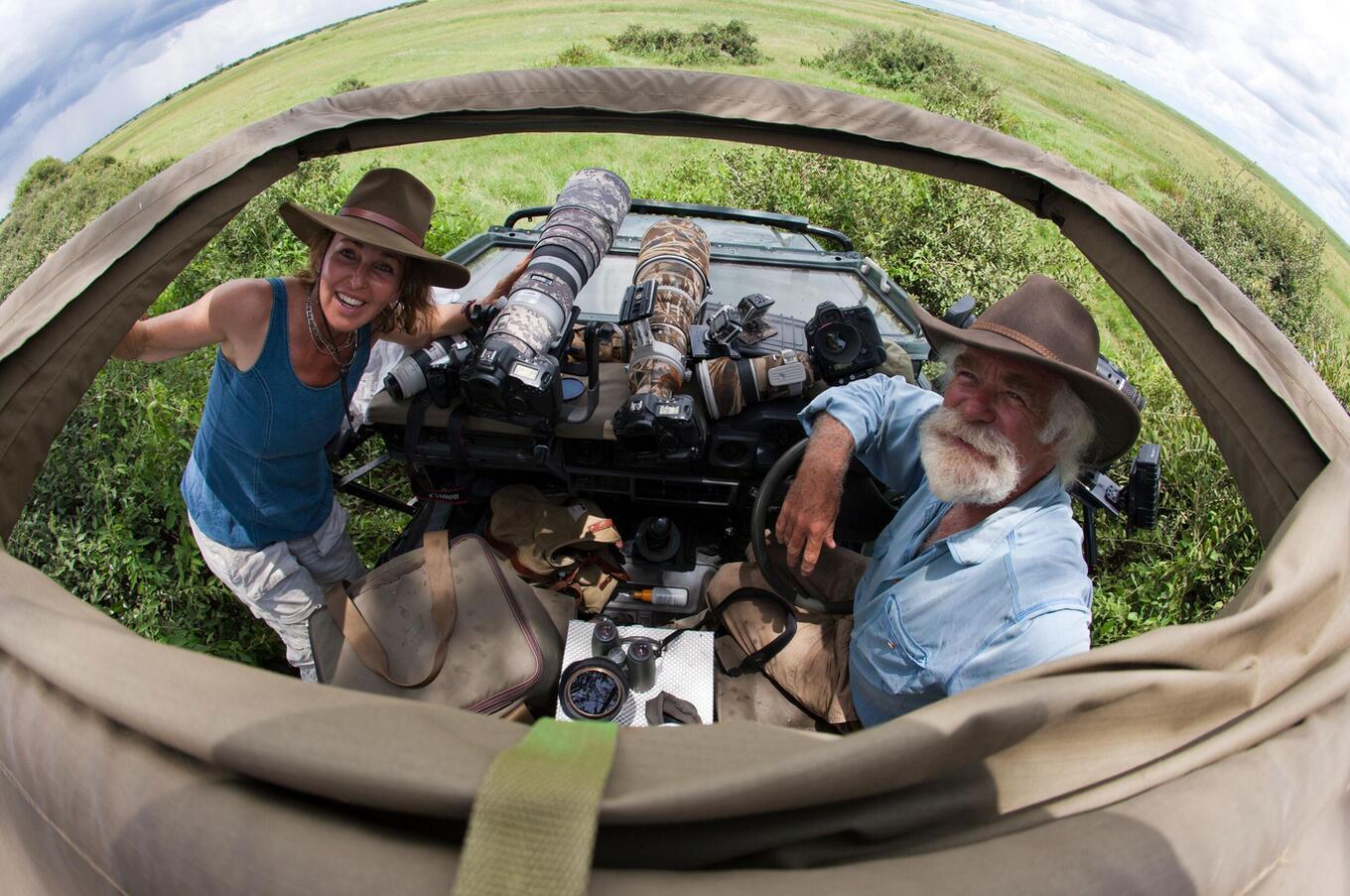
If I had to make a wish...
World sanity to stop destroying the environment, we're killing everything!
Recommend a book...
So many... The Divine Comedy by Dante.
Your favorite movie...
Okavango River of Dreams. Well, that's cheating, it's our latest documentary series! Maybe Memento (Chris Nolan's 2000 film, maybe even his first), and Inception. Both because they focus their attention on the moment, and I think my mantra is to live in the moment.
Your favorite dish...
Just about anything from our Executive Chef at Great Plains. I must say that I always insist that every dinner at a Great Plains campground ends with some dark chocolate. It's the perfect ending point to a meal under the stars shared with compassionate people and conversations about changing the world.
